Renault Zoe (2022) review: little car, long range, don’t crash
► Renault’s aging electric supermini is still a good buy
► One of the most popular electric cars in Europe
► Zero-star Euro NCAP rating, though…
The Renault Zoe is the French firm’s most successful electric car – although given that until recently the only competition for the title was the Twizy Quadricycle and short-lived Fluence saloon, this should hardly come as a surprise. Now effectively into its third generation, the Zoe has always been a smartly thought-out small EV with a pleasant driving experience and a driving range that’s steadily been increasing over time.
This latest version is good for a WLTP claim of 245 miles per charge – around double that of the similarly scaled Mini Electric and Honda E – and also benefits from a more powerful motor than before, optional CCS fast charging and a revamped interior with more upmarket trim and improved technology. Renault has long abandoned it original scheme of leasing the battery separately to the car as well.
So while the brand new Renault Megane E-Tech Electric is a substantially better electric vehicle if you really must have a diamond on the front and can afford the price difference, the Zoe is still more than able to hold its head-up among direct rivals.
At least until you get to the matter of Euro NCAP safety ratings.
Mục Lục
Is the Renault Zoe safe?
In December 2021, after being on sale for over a year, this version of the Renault Zoe received zero stars from the European crash safety body. Only the third car in history of Euro NCAP to get a zero rating, this represents a significant fall from grace for Renault which was, with the Laguna in 2001, the first company to achieve the full five stars.
Since the previous Zoe was a five-star car also, you might be wondering how things can possibly have gone so disastrously wrong – and the answer is combination of shifting standards are not terribly impressive physical crash performance. Read the official Zoe Euro NCAP report, and words such as ‘poor’ and ‘weak’ do rather jump out at you, and so too does the lack of modern active safety aids.
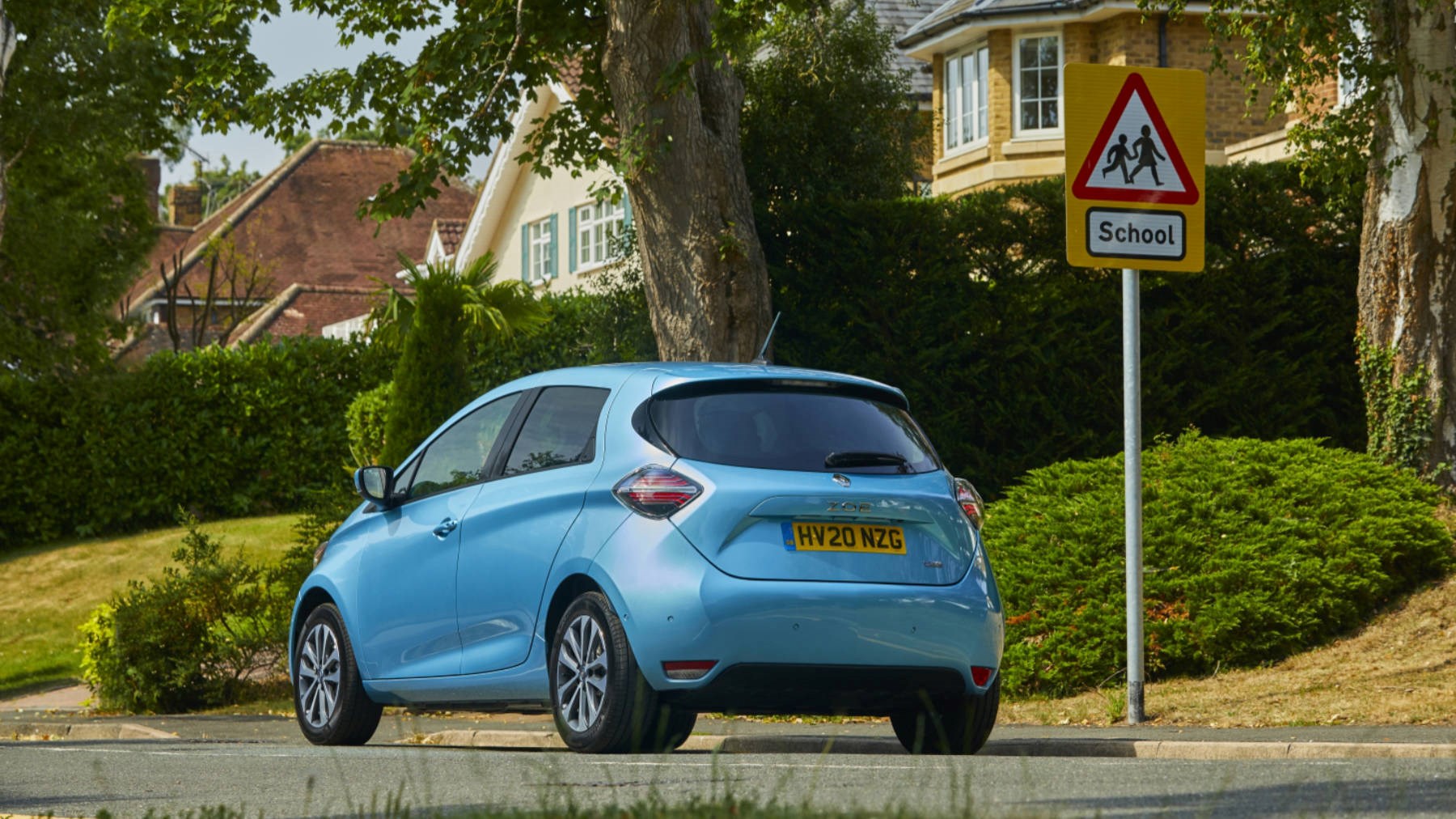
The final tallies are scores of just 43% for adult occupant safety, 52% for child occupant safety, 41% for vulnerable road users and a mere 14% for safety assist systems.
This is a real shame, because it makes what is otherwise a very good electric car very difficult to recommend in 2022.
Still, let’s run through the remaining stand-out features of this popular model.
What else is worth knowing about the Renault Zoe?
Throughout the evolution of tech, the first-generation is for early adopters, the second-gen addresses the biggest issues, and almost invariably the third revision is the one that nails it for the majority of customers. Take the iPhone – the first one didn’t even support 3G, the second one was a little better, but the third, 3GS, added video recording and all the features we now take for granted as the bare minimum.
Like the iPhone, the Zoe’s appearance hasn’t changed a huge amount as it’s evolved, but it feels less like Renault has simply refined a few areas of this car with its standard facelift polish, and more that it just drove the car wholesale into a massive vat of the stuff. The process of incrementally improving so many facets at once has resulted in a significantly better car overall.
Let’s start with the drivetrain. Those easily confused by the previous car’s offering of different battery sizes and charging rates can delight in the news that, this time around, there’s just one choice to suit all drivers.
It’s the same physical size so it doesn’t encroach on interior space, but thanks to improved architecture and chemistry it now has more power – 52kWh – or the same as 4,727 iPhones, good for a real-world range of 245 miles. Or in other words, what the old one unrealistically promised under more relaxed NEDC testing.
Surely it takes ages to charge…
The knock-on effect of the Renault Zoe’s new, larger battery pack is that AC charge times have increased. Now, charging up from empty using your 7kW wallbox will take 9h25min, or three hours at a public 22kW point. Plugged into a three-pin socket, you’ll be waiting 30 hours for a full charge.
On the other hand, new for this generation of Zoe is optional support for 50kW DC fast charging – and those public chargers can zap your car to full in 1h10min. Even so, Renault reckons 80% of charging will still be done at home or the office.
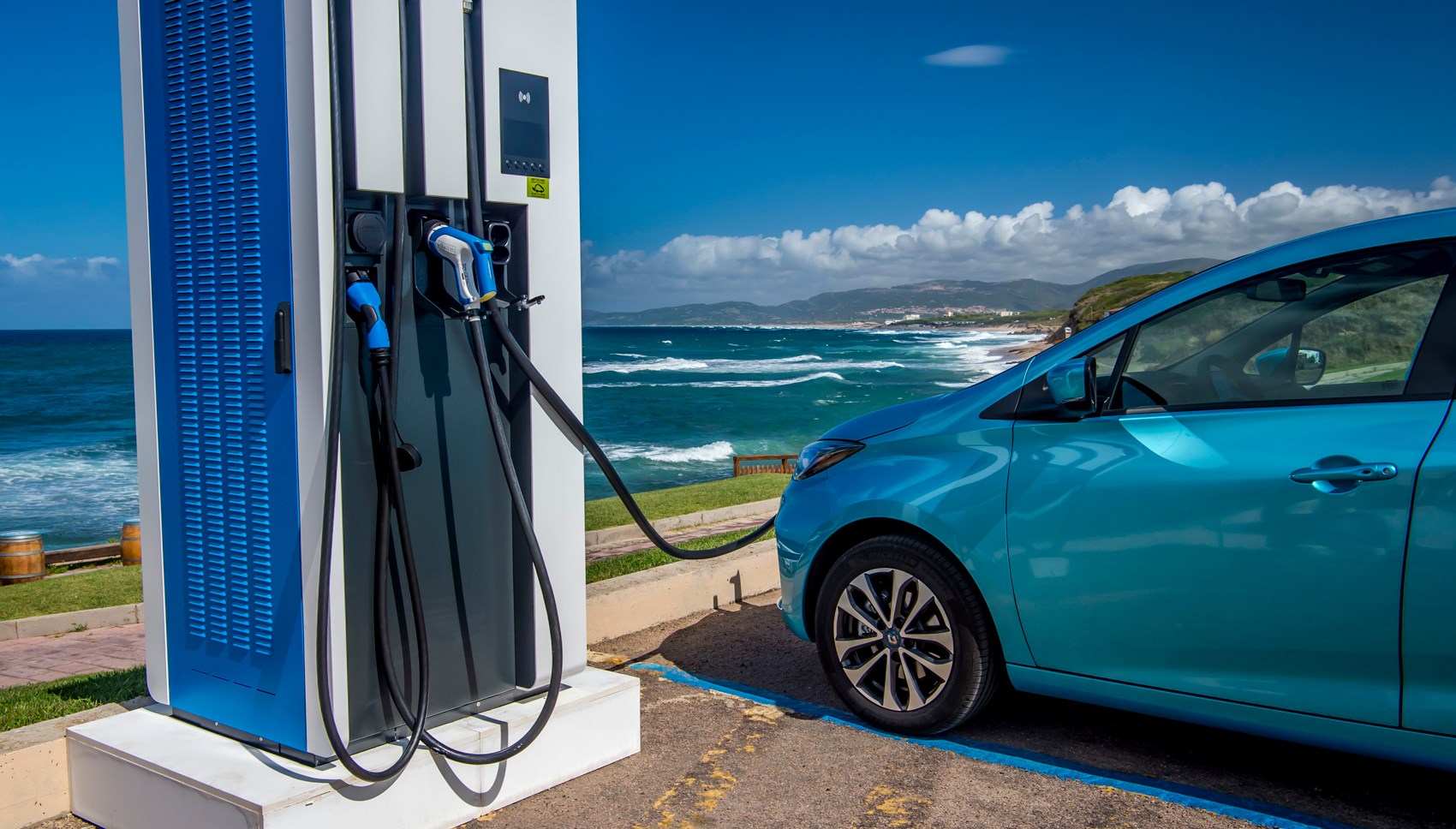
The charging habits of electric car owners are probably best saved for another conversation, but look: we all need to stop obsessing about how long it takes to go from 0-100% in one hit. Much more relevant is the fact you get 75 miles in the tank in one hour from a public 22kW charger, or 90 miles in 30 minutes at a 50kW charger.
If you plan on frequently making long journeys in your Renault Zoe, that option is well worth it. If you’re just using it for typical urban routines, you’ll be fine without it.
Is it fast like other electric cars?
The Zoe R135 is more powerful than its predecessor with 134bhp and 181lb ft of torque. This is important because the rival Vauxhall Corsa-e and Peugeot e-208 have 135bhp.
You still get a single-speed gearbox feeding power to the front wheels, but the 0-62mph time of the more powerful Zoe is now under 10 seconds for the first time. Not hot-hatch fast but usefully quicker when driving outside of the city.
The Zoe’s weaknesses are more apparent when you leave the confines of 40mph limits and built-up areas. Even with the 52kWh battery and greater torque of the R135, the 245 mile range falls to 149 miles if you drive at a sustained 70mph.
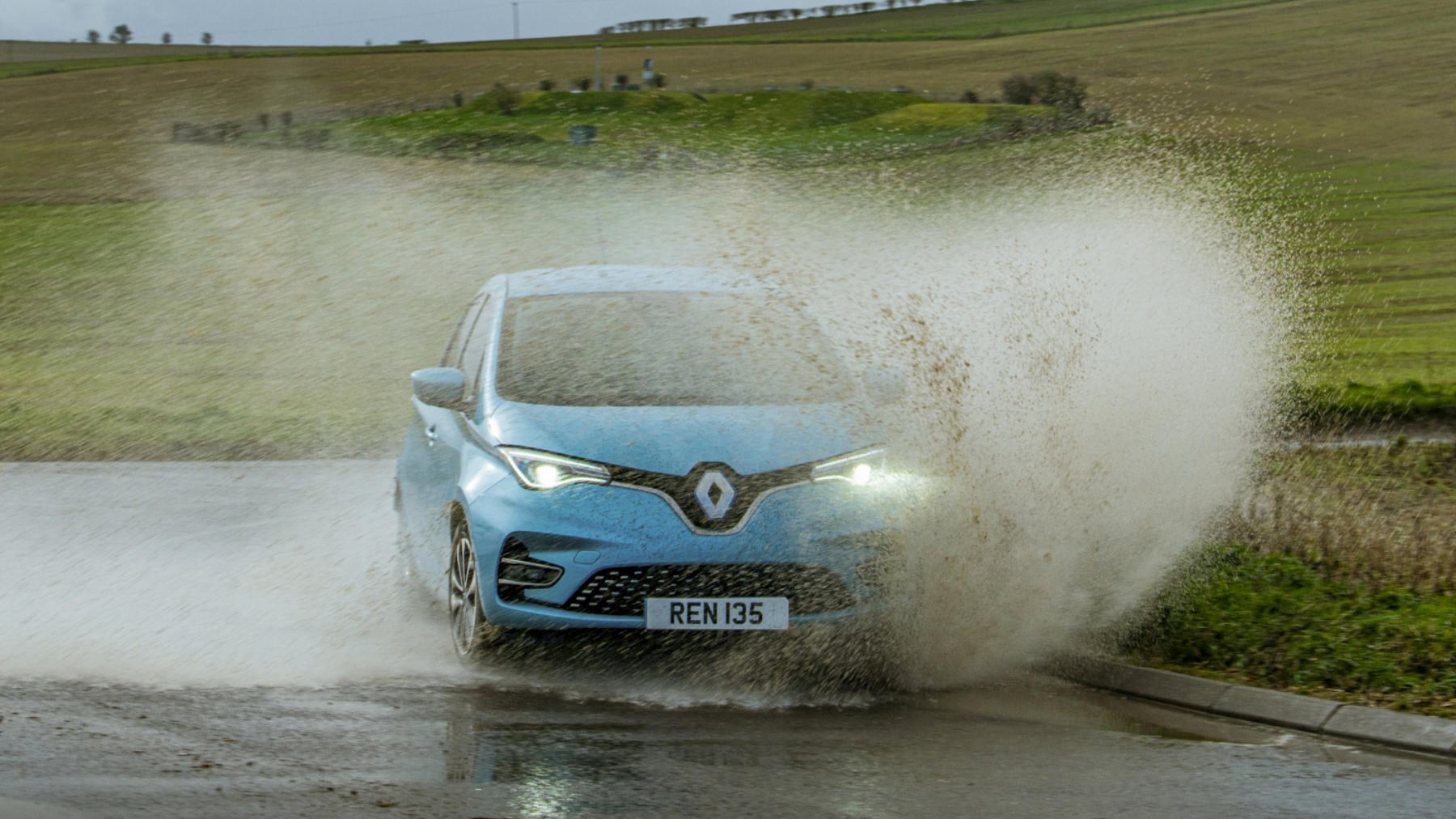
Renault says going from 50 to 75mph, as when you’re joining a motorway or overtaking something on a country road, is now 2.2 seconds quicker than before, but the impact on range might make you think twice about making the most of this. It feels livelier than the previous Zoe, responding quickly and confidently to a prod of the throttle. The old car wasn’t painfully slow but it always felt like it was building to a peak that never arrived.
You also now get access to a stronger regenerative braking ‘B’ mode. It’s not as powerful as the Nissan Leaf’s one-pedal driving set up, but it certainly slows the car down more abruptly when you take your foot off the accelerator. So much so that you need to carefully mete out its effects in order to not tip the suspension balance into a nosedive.
So it’s softly sprung?
The Renault Zoe isn’t really pitched as a driver’s car, so you shouldn’t be expecting Megane RS Trophy levels of involvement, but there is a roly-poly nature that still separates this from in-house ICE rivals. This has always been the case, frankly, and does at least mean it rides nicely, at least in base form. The R135 GT-Line has a slightly harsh undertone that thumps and bumps over road imperfections, yet still leans in a stereotypically Gallic way around the bends.
It’s not actively bad to drive – the low centre of gravity helps to keep things reasonably in check, and there’s stacks of grip on offer, but you can unsettle the body through successive bends with very little effort, and fast roundabouts feel reckless.
The steering is also that anti-dream combo of being quite light but also devoid of feel, so you’re never really 100% sure how much you need to turn it in order to make the car go where you want. But let’s get some perspective here – at its heart this is an electric car designed for short city trips and the occasional longer jaunt. Make it any more fun to drive and people will complain they’ve drained the battery in half the claimed mileage due to overly-spirited driving.
You said the Renault Zoe interior was much better…
A huge leap, frankly, from the old car thanks to significantly nicer materials and loads more tech. You still sit up super high like you’re in a Captur, but that odd faux-futuristic dial screen has gone, replaced with a more conventional 10.0-inch digital setup.
Even on the most expensive model, the seats are pretty basic. The generously squashy pads have no height adjustment and just the bare minimum of distance and backrest tweakage. There’s a hint of Renault 5 cool in the one-piece back and crudity. It’s tempered by the knowledge you didn’t just pay Renault 5 money, and you can sit on far nicer perches for £30,000.
The dashboard’s LCD displays media or sat-nav info between a speedometer and efficiency readout, behind a new steering wheel with actual buttons for the cruise control, which were previously placed somewhat bafflingly behind the gearlever and unlit, like in all Renaults.
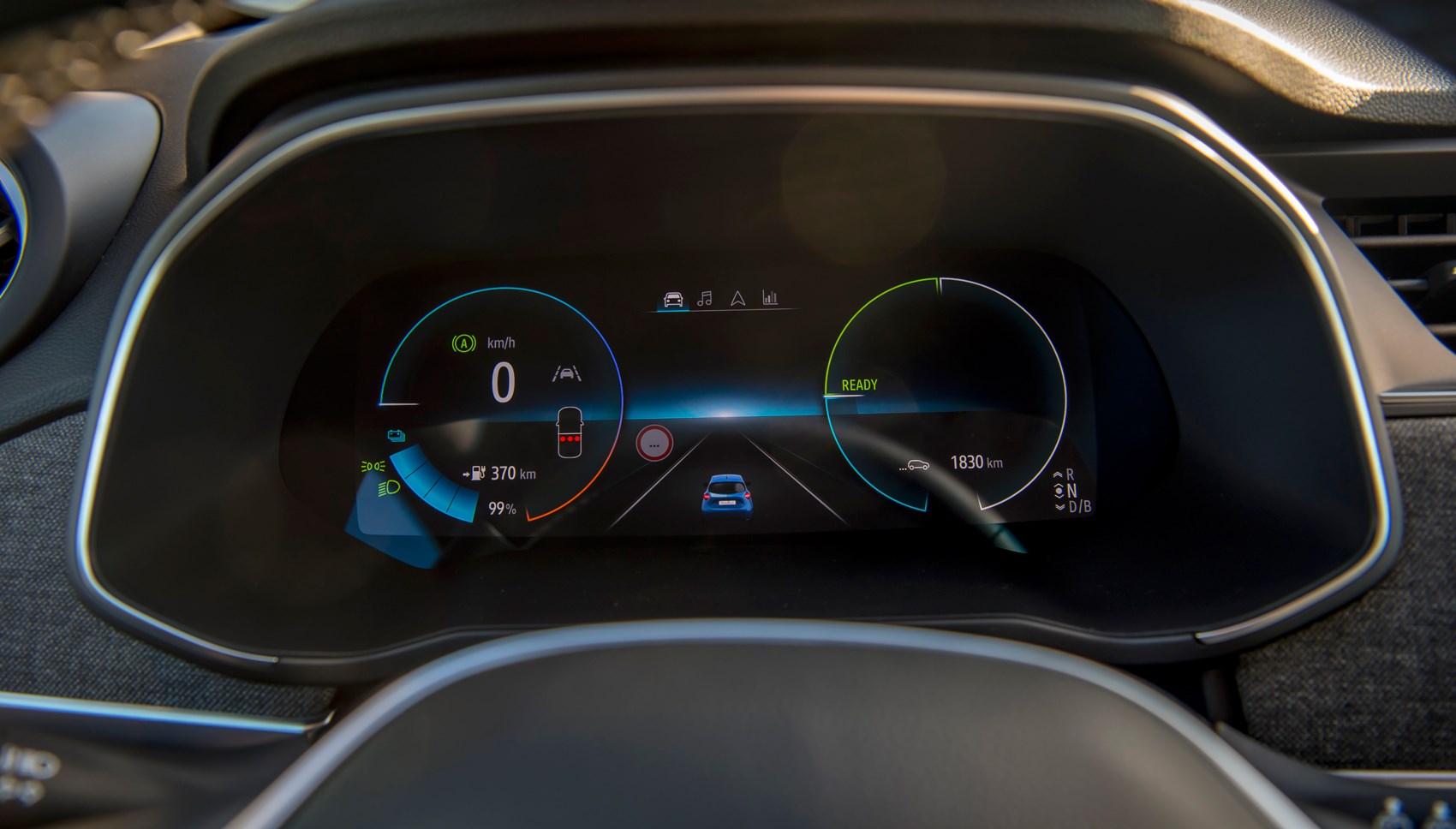
As standard you get a 7.0-inch infotainment screen (the mid-grade option on the Clio) which comes with Android Auto and Apple CarPlay as standard, and sat-nav in mid-spec cars. Move up to the top trim and you get a 9.3-inch portrait screen, which is very good indeed.
The interior has been given a visual and environmentally friendly uplift with a swathe of material made from recycled seat belts and bottles, plus there’s a total of 22.5kg of recycled polymer parts in and around the cabin.
Less obvious improvements include an electronic gear shifter and parking brake, replacing the distinctly anachronistic mechanical items in the old car. This also means you can now park up, turn the car off and walk away without having to select P or pull the handbrake – good for ease of use and also for freeing up space for two cup holders and an optional wireless phone charger.
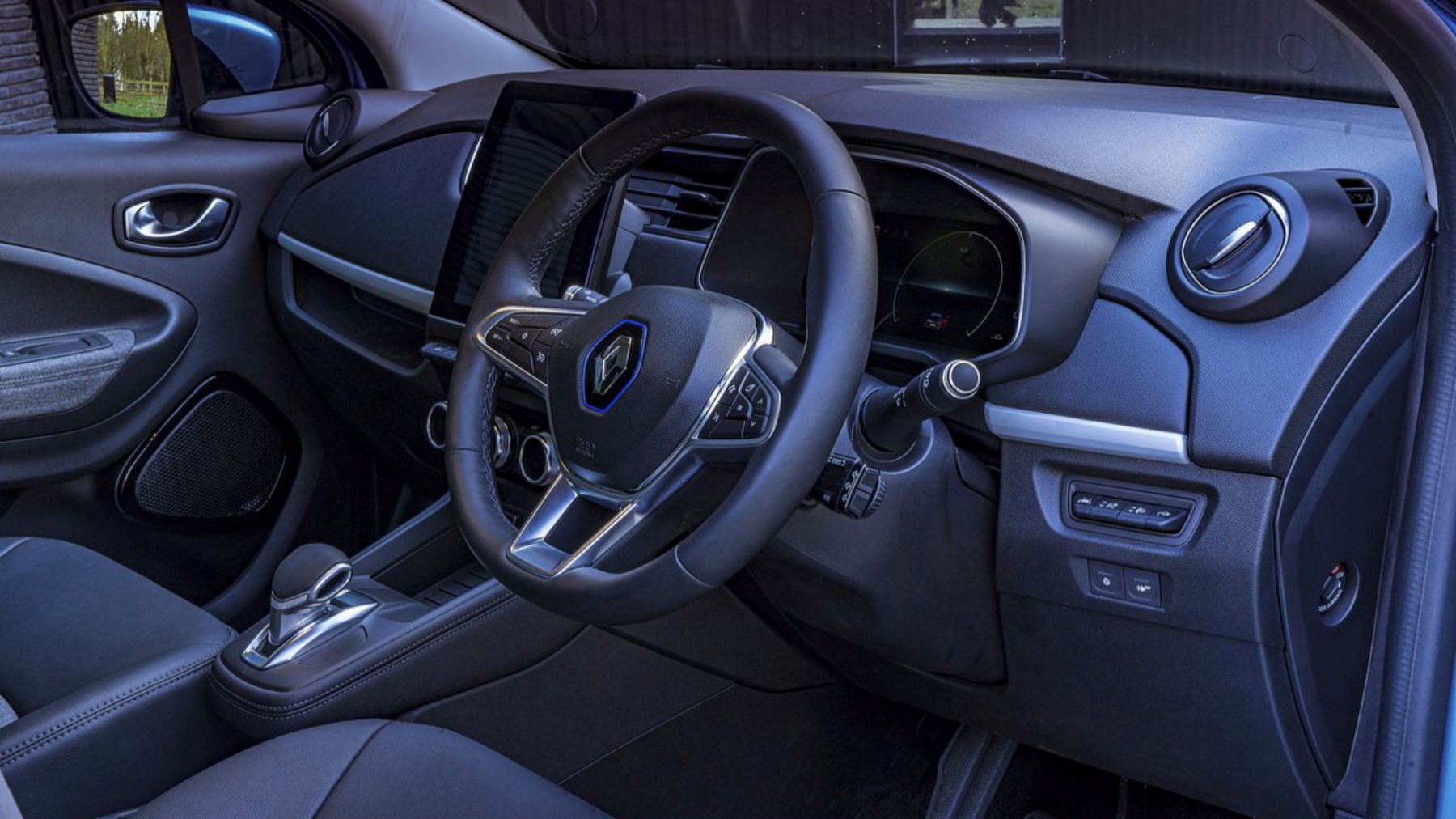
Space in the back is the same as before – fine for head, less for leg thanks to that high-rise floor, but there’s a fifth seat and no transmission tunnel to get in the way. The boot’s unchanged too – 338 litres – which Renault said was an absolute red line for Zoe drivers. They like big boots and they cannot lie.
Tech-wise a raft of new sensors means you can get things like autonomous braking and active lane keep, blind spot warning and traffic sign recognition. You can even get auto high-beam for the now standard LED headlights. Oh, the Corsa-e comes with those as well, coincidentally.
Renault Zoe: verdict
While the previous Zoe felt like it was making a big noise (at least under 20mph) about being a silent electric car, this version appeals more to conventional car buyers who want something that looks and feels like a Clio, but just happens to have a plug socket on it and a recording of robotic whalesong to alert pedestrians.
With every update and facelift that passes the Zoe becomes more and more desirable for actual, mainstream car buyers, not just tech evangelists or off-gridders with a roof-full of solar panels. We’re looking at the tipping point here, people. As evidenced by the glut of small EVs, including the Honda e, Mini Electric and new Fiat 500.
The trouble for Renault is that all of these rivals have more than zero Euro NCAP stars. And no matter how low the risk of an accident, and regardless of whether you’re upgrading from a classic with the structural integrity of a biscuit tin or a much more modern alternative, that rating is surely always going to be at the back of your mind.















![Toni Kroos là ai? [ sự thật về tiểu sử đầy đủ Toni Kroos ]](https://evbn.org/wp-content/uploads/New-Project-6635-1671934592.jpg)


